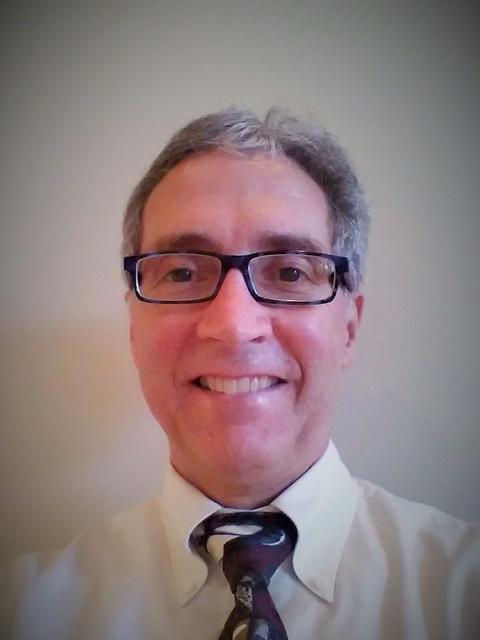PEHSU Case Conference Webinar
This in-depth and interactive series provides a platform for learning and discussion about issues that focus on current and emerging aspects of pediatric and reproductive environmental health.
Phosphine Reminds Us That Children are Not Little Adults - April 19, 2017 - 1PM EDT
Learning Objectives
- Describe danger of improper phosphide application in community
- Identify vulnerable age group and why
- Describe PPE required for providers
- Describe manifestations of PH3 poisoning
- Describe treatment of PH3 poisoning
- Describe challenges in declaring exposure site safe for reoccupancy
Presenter: Thomas G. Martin, MD, MPH
 Thomas G. Martin, MD, MPH, FACMT, FAACT, FACEP
Thomas G. Martin, MD, MPH, FACMT, FAACT, FACEPWebinar Recording and Materials
Continuing Education
To receive continuing education (CE):
- First establish a login with the CDC if you have not already. Click here to access the CDC Training and Continuing Education Online webpage.
- Complete the activity
- Complete the Evaluation at www.cdc.gov/TCEOnline
- Pass the posttest at 80% at www.cdc.gov/TCEOnline (Posttest consists of a mix of five multiple choice and true/false questions.)
FEES: No fees are charged for CDC’s CE activities.
ACCREDITATION STATEMENTS:
CME activities with Joint Providers: This activity has been planned and implemented in accordance with the Essential Areas and policies of the Accreditation Council for Continuing Medical Education through the joint providership of the Centers for Disease Control & Prevention and American College of Medical Toxicology. The Centers for Disease Control and Prevention is accredited by the Accreditation Council for Continuing Medical Education (ACCME®) to provide continuing medical education for physicians.
Regarding WC2622 - The Centers for Disease Control and Prevention designates this live educational activity for a maximum of 1.0 AMA PRA Category 1 Credits™. Physicians should claim only the credit commensurate with the extent of their participation in the activity.
Regarding WD2622 - The Centers for Disease Control and Prevention designates this enduring material for a maximum of1.0 AMA PRA Category 1 Credits™.
Other Credit types:
- CNE: The Centers for Disease Control and Prevention is accredited as a provider of Continuing Nursing Education by the American Nurses Credentialing Center's Commission on Accreditation. This activity provides 1.0 contact hours.
- IACET CEU: The Centers for Disease Control and Prevention is authorized by IACET to offer 1.0 CEU's for this program.
- CECH: Sponsored by the Centers for Disease Control and Prevention, a designated provider of continuing education contact hours (CECH) in health education by the National Commission for Health Education Credentialing, Inc. This program is designed for Certified Health Education Specialists (CHES) and/or Master Certified Health Education Specialists (MCHES) to receive up to 1.0 total Category I continuing education contact hours. Maximum advanced level continuing education contact hours available are 0. CDC provider number GA0082.
- For Certified Public Health Professionals (CPH): The Centers for Disease Control and Prevention is a pre-approved provider of Certified in Public Health (CPH) recertification credits and is authorized to offer 1 CPH recertification credits for this program. CDC is an approved provider of CPH Recertification Credits by the National Board of Public Health Examiners. Effective October 1, 2013, the National Board of Public Health Examiners (NBPHE) accepts continuing education units (CEU) for CPH recertification credits from CDC. Please select CEU as your choice for continuing education when registering for a course on TCEOnline. Learners seeking CPH should use the guidelines provided by the NBPHE for calculating recertification credits. For assistance please contact NBPHE at http://www.NBPHE.org.
Disclaimers
Acknowledgement: The U.S. Environmental Protection Agency (EPA) supports the PEHSU by providing partial funding to ATSDR under Inter-Agency Agreement number DW-75-95877701. Neither EPA nor ATSDR endorse the purchase of any commercial products or services mentioned in PEHSU publications
DISCLOSURE: In compliance with continuing education requirements, all presenters must disclose any financial or other associations with the manufacturers of commercial products, suppliers of commercial services, or commercial supporters as well as any use of unlabeled product(s) or product(s) under investigational use.
CDC, our planners, presenters, and their spouses/partners wish to disclose they have no financial interests or other relationships with the manufacturers of commercial products, suppliers of commercial services, or commercial supporters with the exception of Charles A. McKay and he wishes to disclose that he is a member of the Scientific Advisory Council, Environmental Health Research Foundation (EHRF). EHRF addresses issues related to biomonitoring, a topic that is also relevant to some of the activities in the Grand Round Series that might be discussed in future sessions. EHRF receives funding from sources that includes industry. Dr. McKay has reviewed and written material for EHRF, that could create a perceived conflict of interest regarding environmental chemical exposure assessment/measurement.
Planning committee discussed conflict of interest with Dr. Charles A. McKay to ensure there is no bias. Content will not include any discussion of the unlabeled use of a product or a product under investigational use. CDC does not accept commercial support.








